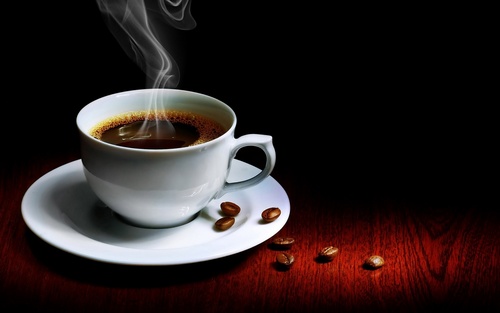5 Absolute Worst Things You Can Add To Your Coffee

Our love affair with coffee certainly isn’t a bad thing. The stuff’s been shown to boost memory, mood, and heart health, and even lower the risk of diabetes. The problem is all the sugary, artificial, toxic crap you—or your obedient barista—use to make your morning mud taste “good.” Not sure if your go-to coffee order’s just a cesspool of unhealthy ingredients? We’ve rounded up 5 of the worst add-ins, plus cleaner alternatives that enhance coffee’s natural awesomeness.
Non-dairy creamers

These guys might just be the worst of the worst. Topping ingredient lists are often corn syrup solids and partially hydrogenated vegetable oils, which mimic the mouthfeel of cream, but are way sketchier. Corn syrup essentially equates to sugar and empty calories, while partially hydrogenated oils are just a fancy way of saying trans fats—manmade, artery-clogging, industrially-produced fats that have been strongly linked to heart disease and diabetes. If you have to go the non-dairy route, go with something like So Delicious Coconut Milk “Creamer”—its first ingredient is organic coconut milk.
==>Click here for: The Celebrity “6-Minutes to Skinny” Secret
Flavor shots
Indulging in coffee drinks doctored up with squirts of vanilla, hazelnut, caramel, or pumpkin spice is pretty much like shooting up pure cane sugar and artificial colors. One ounce (or about four pumps, the amount in a Grande Starbucks drink) of many Torani brand flavored syrups contains 19 g of sugar. For a flavor boost without the blood glucose spike, try adding a few drops of vanilla, peppermint, or various nut extracts (e.g. hazelnut or almond). They’re naturally sugar free, and chances are you’ve got some in your pantry already.
Splenda, Sweet ‘n Low, and EqualSure

These zero-calorie sweeteners don’t cause an immediate blood sugar spike and crash like sugar, but more and more studies are linking lab-made sugar substitutes to things like impaired glucose metabolism, which may lead to cravings and up your risk of diabetes. They may also mess up our gut bacteria, which mounting research shows plays a big role in all sorts of bodily functions. Some experts believe stevia leaf extract is likely a safer alternative.
Sugar

A bit of regular sugar won’t hurt you, but if you’re drinking several coffees per day, those empty calories pile up fast. Adding just 2 tsp of sugar to each of your 3 daily cups equates to about 48 g total, or more than what’s in a can of Coke. For a squeaky clean alternative, add a few dashes of cinnamon—it has a natural sweetness despite being sugar-free. Bonus: studies show cinnamon can actually help reduce blood sugar spikes, keeping your cravings in check. If you’re feeling a little more adventurous, try adding cardamom. This spice is commonly added to coffee in the Middle East and lends a more exotic flavor.
Skim milk

Hear us out on this one. Skim milk might not necessarily be “bad,” but mounting research suggests that the full-fat stuff might be better. One recent study found that people who regularly consumed whole-fat dairy ate fewer carbs over the course of 4 years, while those who loaded up on mostly low- and non-fat dairy ate significantly more carbs. And if those carbs are coming from not-ideal places (well hello, sugary cereal), that may lead to weight gain. In the second study, regularly eating whole-fat dairy was associated with a 23% reduced risk of type 2 diabetes, while consuming low-fat and non-fat was not, possibly because specific fatty acids in dairy help prevent the disease. So go ahead, consider this permission to drink a (gasp!) regular latte.
>>>FREE Fat Burning Workouts. CLICK HERE to get them!